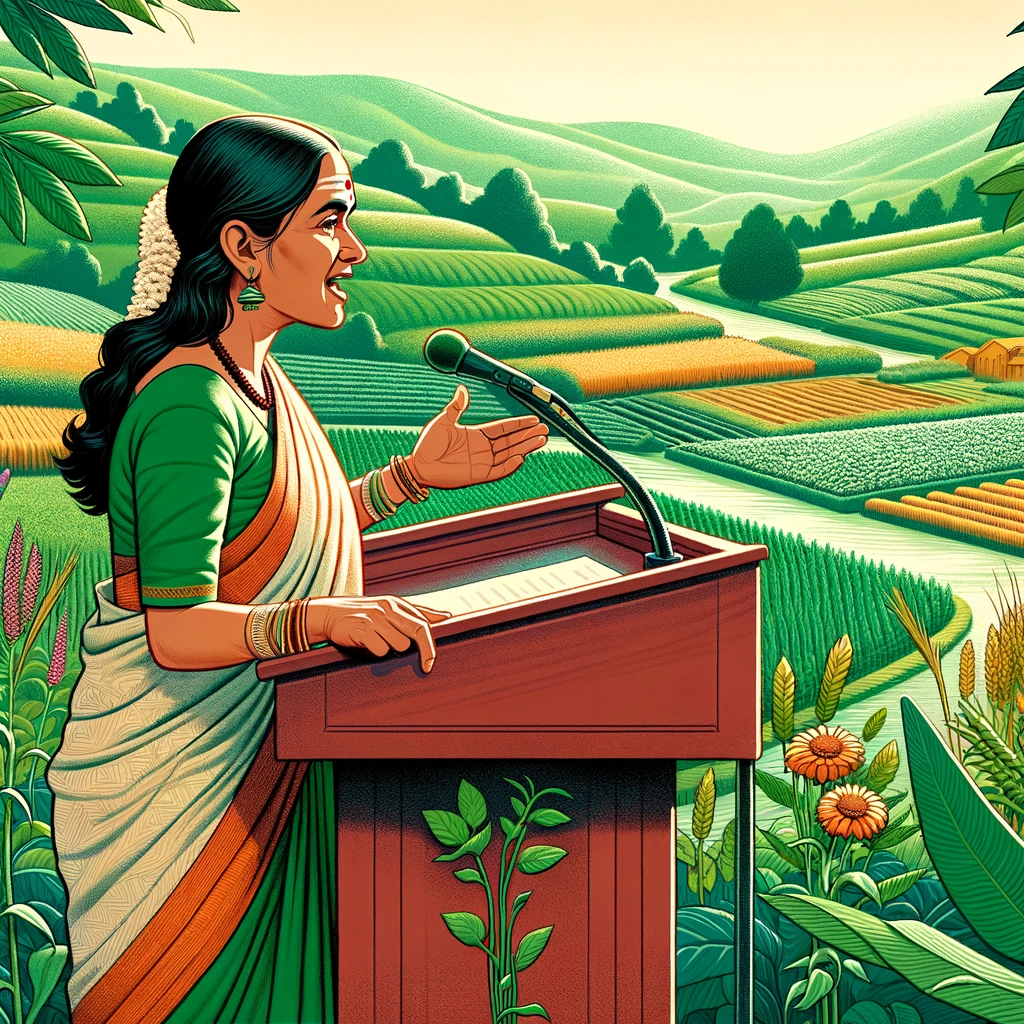Vandana Shiva, an influential environmental activist and eco-feminist, has made significant contributions to the global discourse on sustainable agriculture, biodiversity, and the rights of women and indigenous peoples. This article explores her life, her ideologies, and her impact on the environmental and feminist movements worldwide.
Early Life and Education
Born in Dehradun, India, in 1952, Shiva was raised in the foothills of the Himalayas. She pursued a degree in Physics at the University of Punjab and later went on to earn a Ph.D. in Philosophy at the University of Western Ontario, focusing on the philosophy of quantum theory. Her academic background laid the groundwork for her later work in environmental policy and activism.
Pioneering Eco-Feminism
Shiva’s work is extensively aligned with eco-feminism, which connects the exploitation and degradation of the natural world with the oppression of women. She argues that a more sustainable and equitable world can only be achieved through the recognition of the vital role women play in maintaining biodiversity and ecological balance. Shiva’s writings and speeches have inspired a generation of activists to view environmental conservation through a gendered lens.
Navdanya: The Seed Savers’ Network
In 1991, Vandana Shiva founded Navdanya, a national movement to protect the diversity and integrity of living resources, especially native seeds. Navdanya promotes organic farming and fair trade and has established a learning center for biodiversity conservation and organic farming practices. Through this initiative, Shiva has empowered thousands of farmers in India, promoting biodiversity conservation and organic farming as a means to achieve food security and sustainability.
Opposition to Genetic Engineering and Big Agribusiness
A vocal critic of genetically modified organisms (GMOs), Shiva has campaigned against biotech giants like Monsanto. She argues that patenting seeds as intellectual property leads to monopolistic control over seeds by corporations, undermining the traditional knowledge and resources of farmers. Her activism has brought international attention to the risks posed by agrochemicals and genetically modified seeds to biodiversity and human health.
Awards and Recognition
Vandana Shiva’s relentless activism has earned her numerous accolades, including the Right Livelihood Award—often referred to as the “Alternative Nobel Prize.” Her influence extends globally, with Time Magazine naming her an environmental “hero” in 2003, and Asia Week recognizing her as one of the five most powerful communicators in Asia.

Vandana Shiva remains a formidable figure in the fight against the globalization of agriculture and the corporate takeover of natural resources. Her advocacy for the environment and social justice continues to inspire new activists around the world and serves as a potent reminder of the power of resilient and informed resistance.
